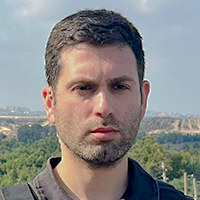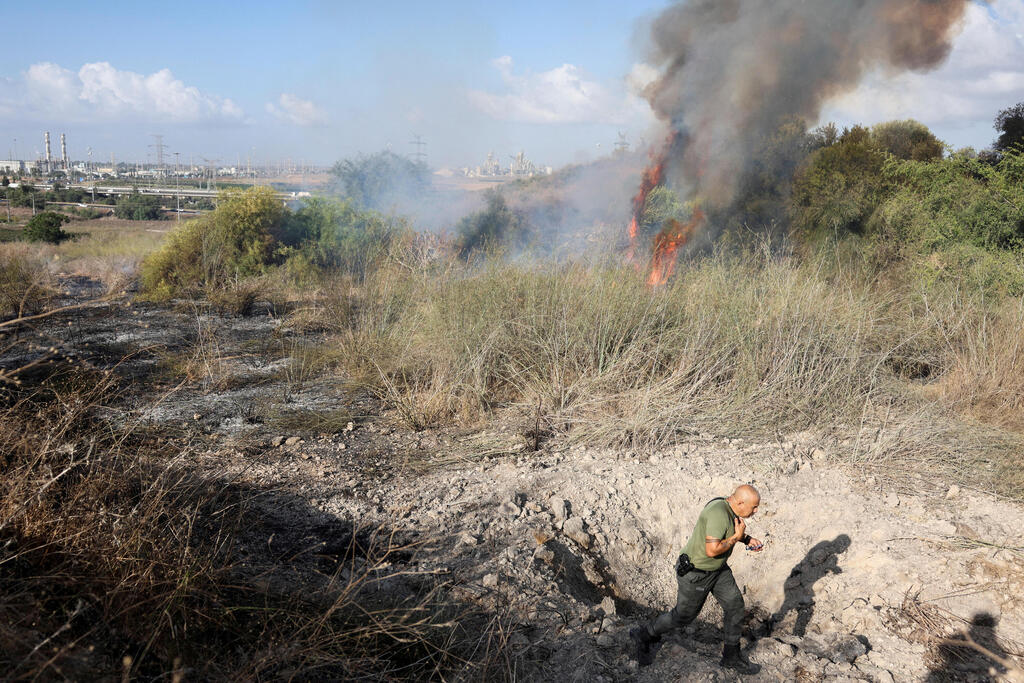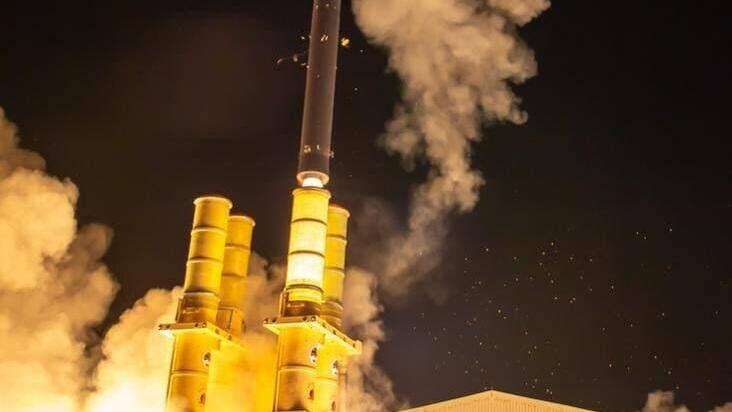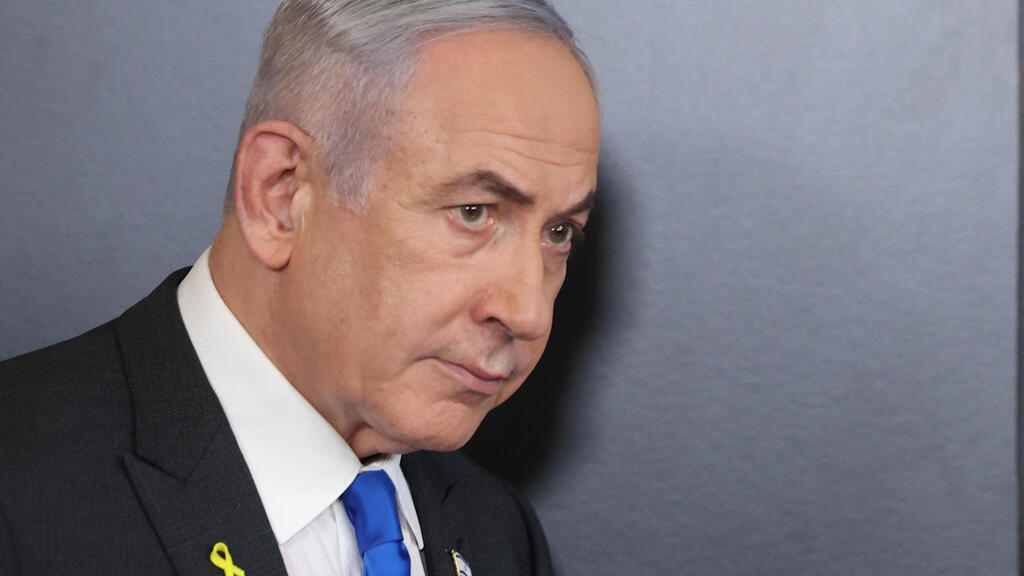Getting your Trinity Audio player ready...
A ground-to-ground missile launched by the Houthis in Yemen was immediately tracked by the Arrow missile defense system’s radar. An initial IDF investigation reveals that an intercept was initiated culminating in one of the interceptors striking the target, albeit without completely destroying it. This has become the focal point of the IDF's ongoing inquiry.
The missile broke apart mid-air, and parts of it landed into an open area close to the central Israeli city of Lod, where a crater was formed. Typically, intercepts result in the full destruction of the target, making this incident particularly unusual. The missile’s path was a direct line from Yemen to Israel, and according to the IDF, it was launched from the northern coastal sector of Yemen.
Multiple interceptors—including from the Arrow and Iron Dome defense systems were fired at the missile, in line with the doctrine for such a threat, to maximize the chances of a successful intercept. The IDF has indicated that over the past year, the air defense systems have been contending with tens of thousands of rocket and missile threats such as precise missiles, rockets, UAVs, cruise missiles, and drones but adds that the air defenses are never entirely foolproof.
The Air Force has dismissed the Houthis' claim that they fired a hypersonic missile. "To our knowledge, our enemies do not possess a hypersonic missile," they said on Sunday evening. The weapon used is known to the defense forces and has been used in the past, though the Air Force refrained from specifically naming the type.
A hypersonic missile is defined as any missile that can travel five or more times faster than the speed of sound, although many ballistic missiles can also travel at such speed.
In military terms, the label typically refers to a missile with maneuvering capabilities at such speed. Ballistic missiles generally lack special maneuvering abilities and follow a predetermined ballistic trajectory, hence their name.
Some hypersonic missiles are cruise missiles, but there are ballistic missiles with maneuvering warheads as well. About a year ago, Iran claimed it had developed a hypersonic missile, which drew significant attention in Israel, especially after Russia first deployed such missiles during the Ukraine conflict.
Following the missile attack, fragments from interceptors rained down in open areas in central Israel and some fell on a train station, causing damage. No one was present at the time of impact. Firefighting teams worked to extinguish a fire caused by the debris.
Fire in Moshav Daniel due to interceptor missile failure
The missile launch triggered sirens in numerous cities and communities in the center of the country, including in the Tel Aviv metropolitan area. Sirens were also activated at Ben Gurion Airport, which was widely reported in the international media.
Prime Minister Benjamin Netanyahu said Israel would exact a "heavy price" on the Houthis, though the scale and timing of the response remain unclear. The prevailing assessment in Israel is that there will eventually be some form of response, although since no serious damage or injury was caused, it may be measured.
There is concern that failing to respond in force could potentially erode Israel's deterrence. After a Houthi drone managed to bypass aerial defenses in July and explode over Tel Aviv, killing one man and wounding others, Israeli jets struck the Yemeni port of Hudeidah causing serious damage. The hope in Israel was that that attack would dissuade the Houthis from further aggression.
After Sunday's missile attack, some believe failing to respond in a significant way would "invite" further attacks.
The attack is expected to be discussed in a security cabinet meeting on Monday, which will also focus on the northern arena where Hezbollah has been escalating its rocket and drone attacks in recent weeks.
Since the onset of the war in Gaza, the Houthis have launched what they term a "support campaign" for the Palestinians and have also been targeting maritime traffic in the Red Sea.
Houthi leader Abdul-Malik al-Houthi said on Sunday that the attack on Israel was a further stage of escalation in the war. "What will come is greater. Our actions will continue as long as the attacks and the siege on Gaza persist. We will continue to coordinate with the resistance in Gaza," he said.









